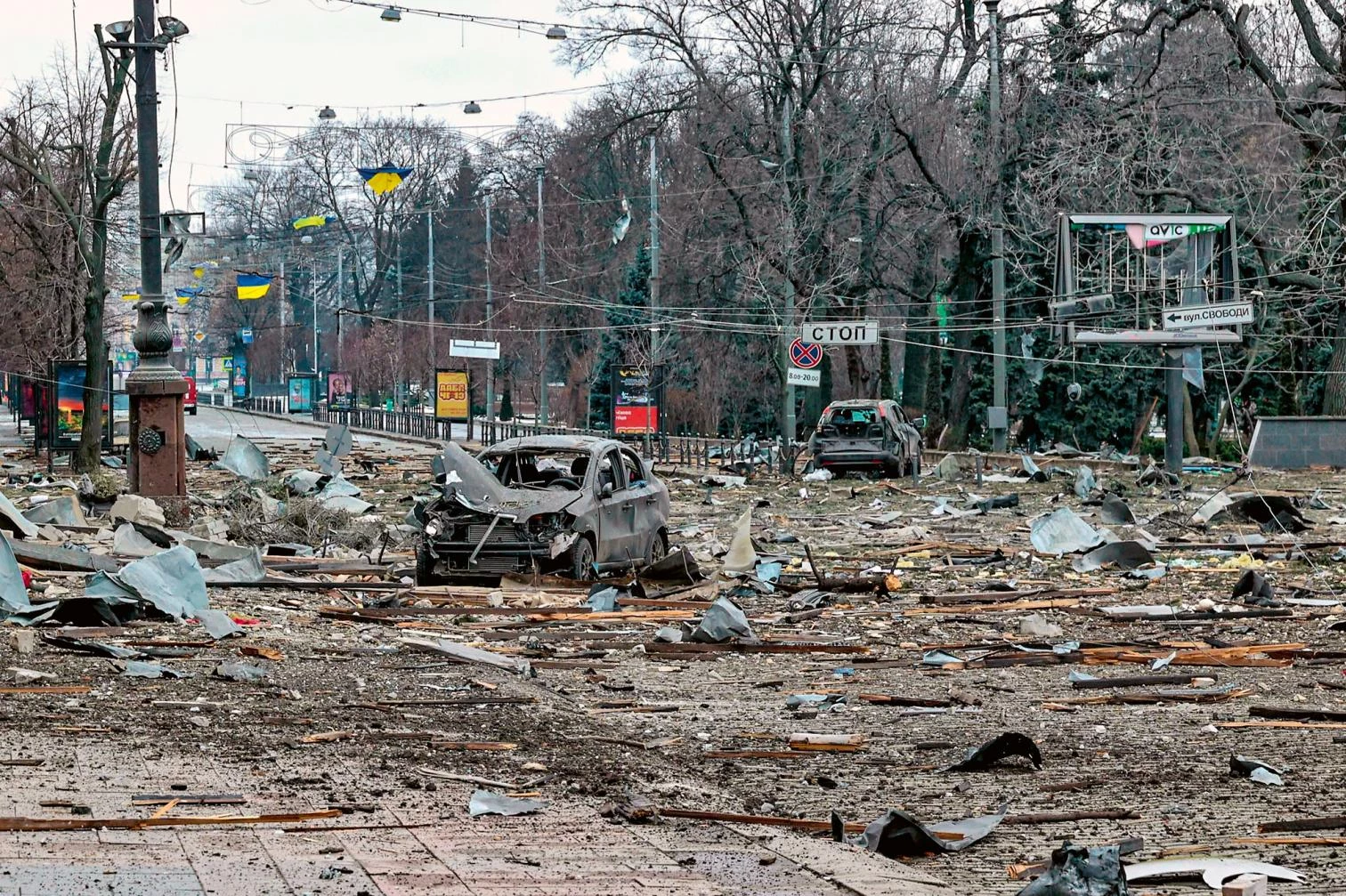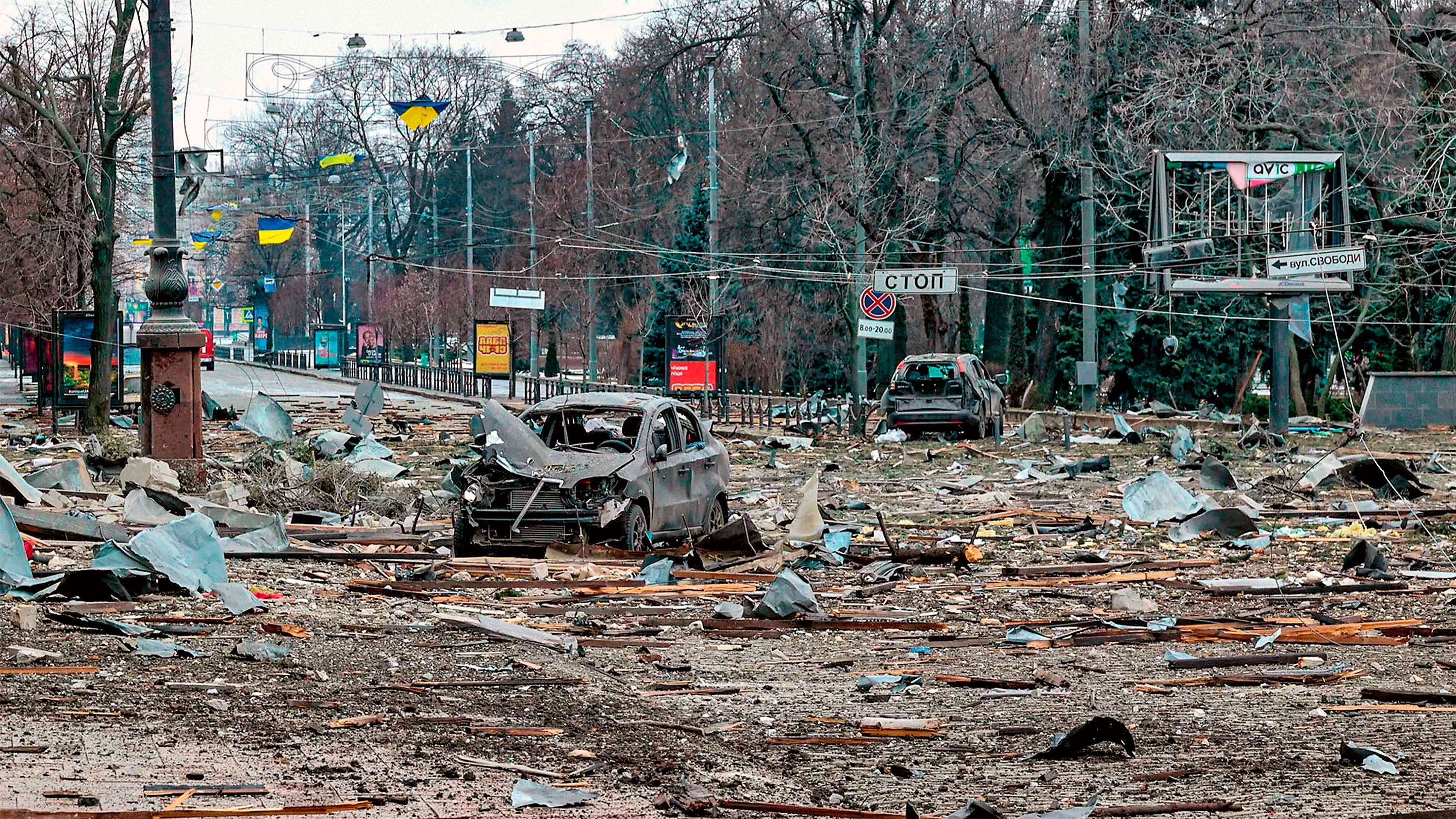The Ashes of March
The Russian army invaded Ukraine on 24 February and the first days of March saw it advance on the country’s main cities, causing mass destruction and forcing an unprecedented exodus.

The devastation of Ukrainian cities like Kharkov, also seen in the dramatic sieges of Kiev or Mariupol, brings to mind the Balkan urbicides or the later destructions of Grozny in Chechnya or Aleppo in Syria.
The tanks of February have produced the ashes of March. After the Olympic pause agreed on with Beijing, on 24 February – already a date that will live in infamy – the Russian army barged into Ukrainian territory, starting a war of unpredictable dimensions that has met with unexpected resistance in cities. The conflict has jolted NATO out of the brain death diagno-sed by Emmanuel Macron, forcing the Pentagon to redirect its gaze from the Indo-Pacific to the European theater, and provoking a unanimous and urgent reaction of the continent in the face of the Russian aggression, which has extended even to steadfastly neutral countries like Switzerland, Sweden, or Finland; a condemnation less vigorous outside Europe, with the significant abstention of China and India in the United Nations, but resolute in many international organisms, which have complemented weapons shipments and commercial sanctions with a boycott in fields as sensitive as sports, pushing Russia to a deterioration of its economy and the ruin of its reputation.
The threat of using energy to exert pressure became evident with Germany’s provisional halting of the Nord Stream 2 pipeline, while the American move to impose a boycott on Russian oil has caused a shock in markets. In any case, the long-term view of a Russia wielding the power it derives from exporting energy, and even grain, is much weakened by the fact that climate change will only benefit the country through the opening of the Arctic routes, but both the melting of permafrost in the north and the droughts in the fertile ‘black earths’ of the south will badly hit essential pillars of its energy and agrarian sectors. Of course it is still early to dismiss the mighty companies Gasprom or Rosneft as ‘paper tigers,’ and unrealistic to propose a ‘gaslift’ of methane tankers – like a replication of the airlift that broke the Berlin blockade at the dawn of the Cold War – but in the middle term Vladimir Putin’s dream of a Great Russia can fall flat on its face with the dramatic contrast between a huge geographic size and a much reduced geopolitical weight.
Beyond the great demographic and economic forces that shape history, the Ukraine war has put the limelight on the role of individuals through Volodymyr Zelensky, an actor who used the production company of his TV series Servant of the People – where he played a teacher who by chance becomes the country’s president – to form a party named like the series and make fiction reality. But the comedian, who appeared in the Pandora Papers as the holder of companies in fiscal paradises and the owner of real estate in the Londongrad of oligarchs, transformed with the aggression into a brave and charismatic leader, perhaps in the manner of General Della Rovere, a con man coerced into impersonating a partisan leader in the Rossellini film, who ends up assimilating the role and behaving like a hero. But in this month of tribulation I will only pay tribute to a song composed half a century ago by Tom Jobim, Águas de Março, and to his own moving rendition in duo with Elis Regina. Listen to it, and try to find in it the redemption that our time denies us.






